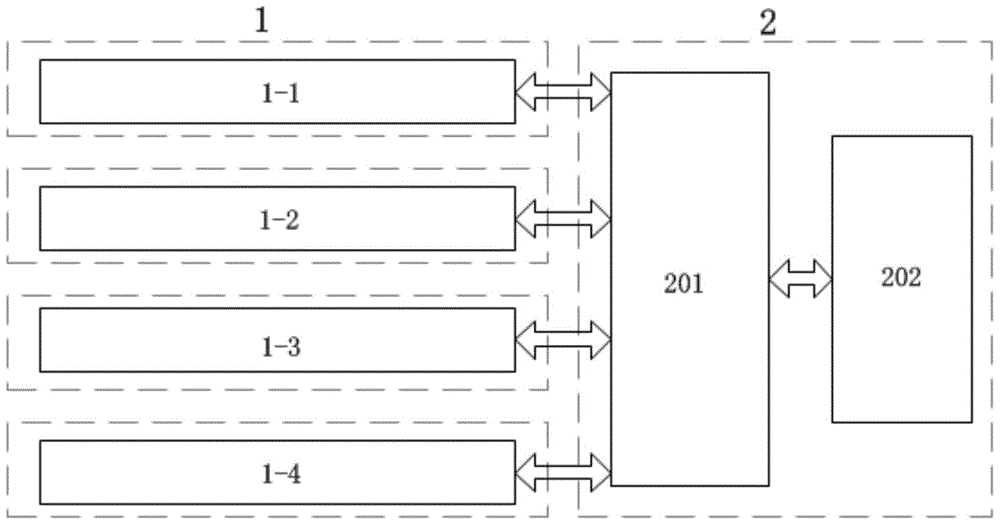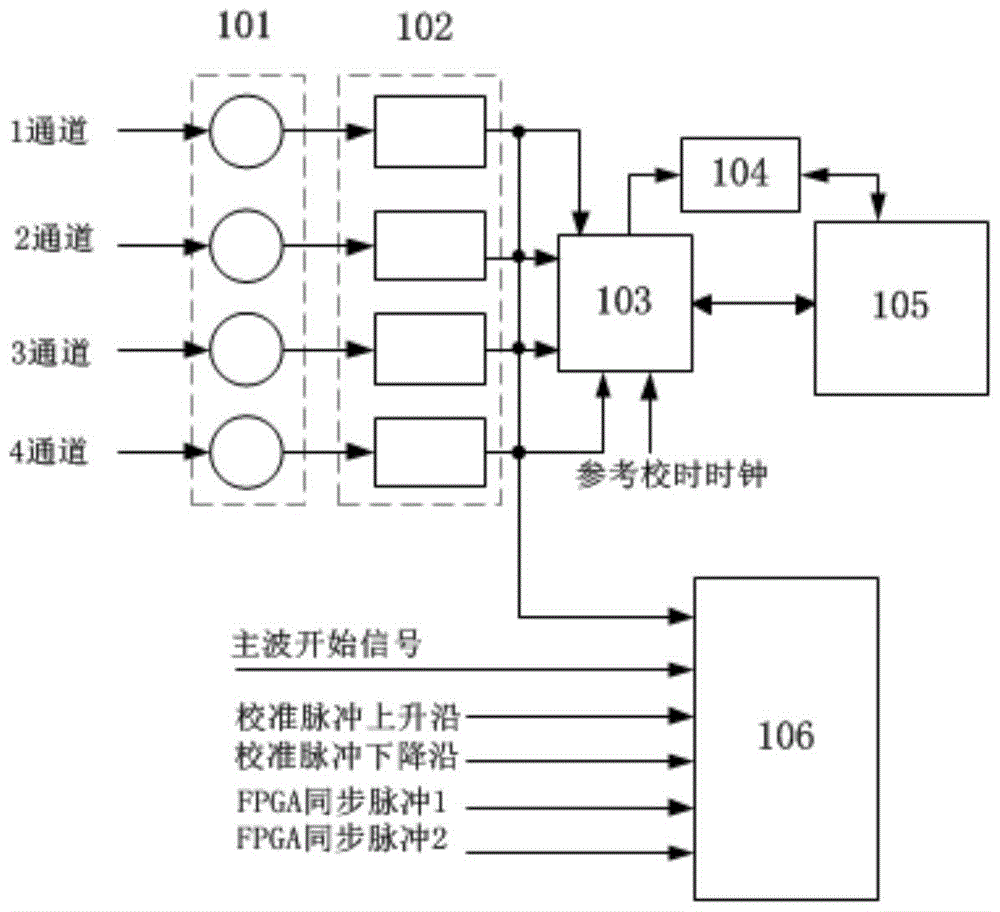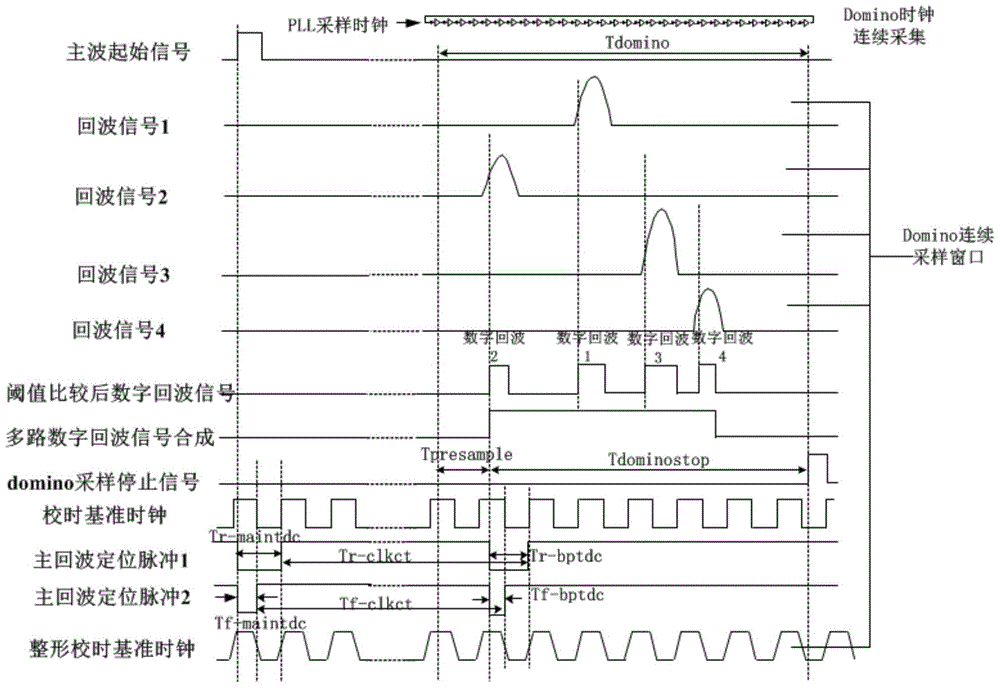Time-Frequency Synchronous Calibration Method Based on SCA Multi-channel High-speed Acquisition System
A high-speed acquisition, time-frequency synchronization technology, applied in the direction of automatic power control, electrical components, etc., can solve problems such as signal inconsistency, to achieve the effect of ensuring consistency, ensuring clock synchronization, and good applicability
- Summary
- Abstract
- Description
- Claims
- Application Information
AI Technical Summary
Problems solved by technology
Method used
Image
Examples
Embodiment approach
[0061] 1. The echo and the calibration clock are asynchronous signals, and there may be cases where the edge of the calibration clock corresponds to the leading edge of the first pulse. In order to avoid the problem of position ambiguity, in this system, two calibration pulses are generated by using both edges of the calibration pulse, which are the rising edge Calibration pulse and falling edge calibration pulse, both pulses are measured at the same time.
[0062] 2. The 16-channel echo signal is input to the relay attenuation network 101 and the high-speed operational amplifier 102 to obtain a digital echo signal. In order to ensure the trigger synchronization of the 16-channel Domino acquisition, every 4 channels of the digital echo signal are a group of input SCA acquisition control FPGA105, the 4-way digital echo synthesis pulse signal generated by the FPGA105 is input to the main processor FPGA201 together with the 3-way digital echo synthesis pulse output by the other 3...
PUM
 Login to View More
Login to View More Abstract
Description
Claims
Application Information
 Login to View More
Login to View More - R&D
- Intellectual Property
- Life Sciences
- Materials
- Tech Scout
- Unparalleled Data Quality
- Higher Quality Content
- 60% Fewer Hallucinations
Browse by: Latest US Patents, China's latest patents, Technical Efficacy Thesaurus, Application Domain, Technology Topic, Popular Technical Reports.
© 2025 PatSnap. All rights reserved.Legal|Privacy policy|Modern Slavery Act Transparency Statement|Sitemap|About US| Contact US: help@patsnap.com



